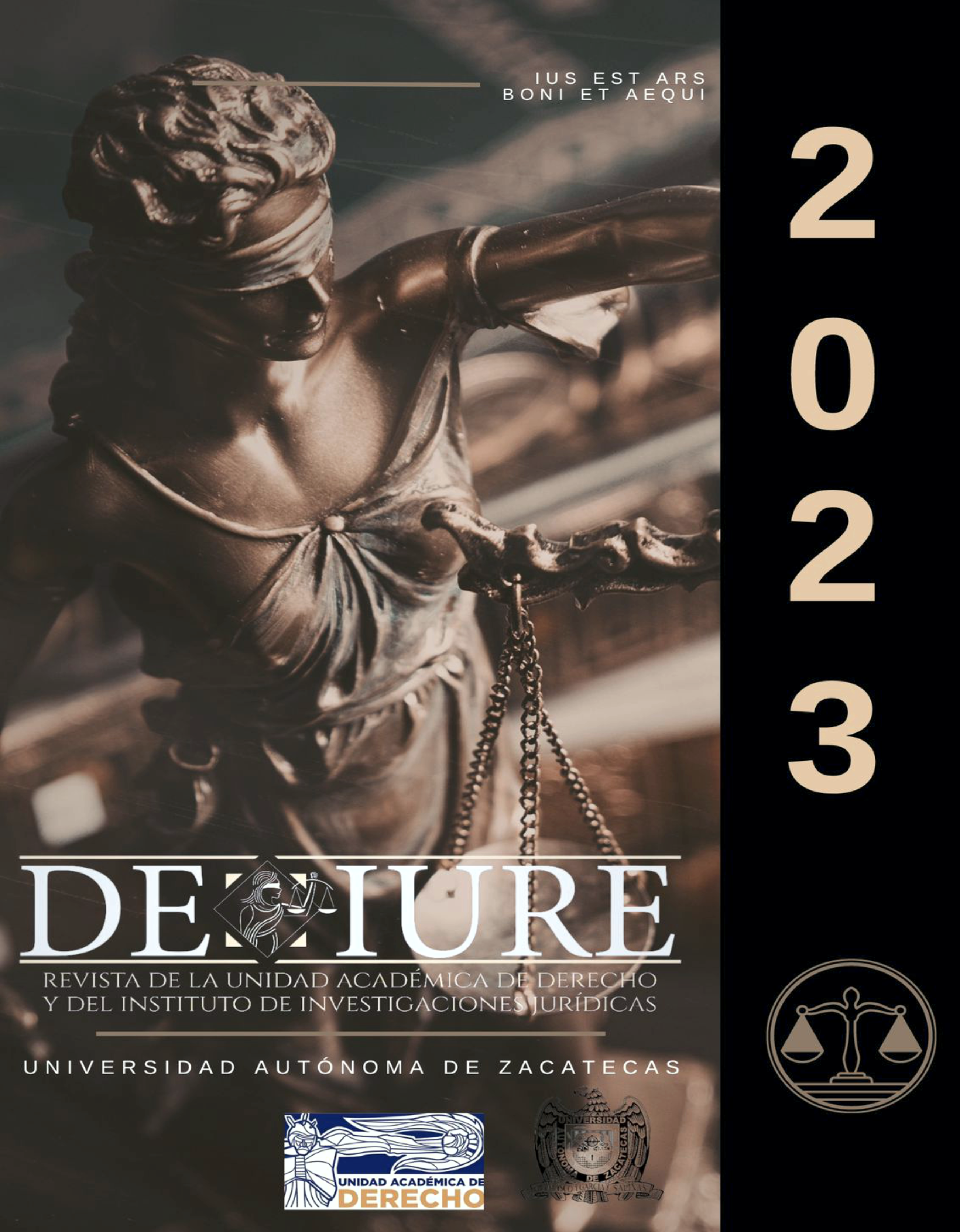Absence of legislative technique in the legal texts of the penal code for the state of Zacatecas
Published 2023-10-09
Keywords
- Técnica legislativa,
- Racionalidad legislativa,
- irracionalidad legislativa,
- racionalidad lingüística,
- homologación
How to Cite
Abstract
RESUMEN
El ordenamiento jurídico vigente en nuestro país, es motivo de constantes reformas a las leyes de toda jerarquía y nivel, sea nuestra Carta Magna, las leyes reglamentarias, ordinarias, etcétera, así como creación de nuevas leyes. Para realizar esa labor, nuestros legisladores deben aplicar invariablemente la técnica legislativa la cual es la que permite cumplir con los niveles de racionalidad legislativa (lógico-formal, teleológica, ética, pragmática y lingüística) para que dichas leyes causen el impacto para el que fueron creadas y generen certidumbre jurídica en los destinatarios de las mismas
Sin embargo, nos hemos percatado de que dicha técnica legislativa en varios de los casos está ausente; uno de ellos es la falta de homologación en cierta terminología utilizada en los cuerpos normativos; específicamente nos referimos a los Códigos penales de las entidades federativas de nuestro país, así como el Código Penal Federal en los que, al referirse a la sanción pecuniaria para sancionar a los que cometen delitos utilizan invariablemente términos como: cuota, multa y UMAs a pesar de que son totalmente diferentes. Ello conlleva a atentar contra la certidumbre jurídica de los gobernados y, a su vez, que puede generar confusión de los órganos aplicadores al momento de decir el Derecho.
Hemos centrado nuestra atención en el Código Penal para el Estado de Zacatecas a efecto de demostrar y ser convincentes en lo expuesto con anterioridad, incluyendo además nuestras propuestas de solución a la problemática.
SUMMARY
The current legal system in our country is the reason for the constant reforms to laws in all ranks and levels, be it our Magna Carta, regulatory or ordinary laws, etc., as well as the creation of new laws. To carry out this work, our legislators must invariably apply the legislative technique, which is what allows compliance with the levels of legislative rationality (logical-formal, teleological, ethical, pragmatic and linguistic) so that these laws cause the impact for which they were created and generate legal certainty in the recipients of the same.
However, we have noticed that this legislative technique is absent in several cases; one of them is the lack of homologation in certain terminology used in the regulatory bodies; We specifically refer to the Penal Codes of the States of our country, as well as the Federal Penal Code in which, when referring to the pecuniary sanction to punish those who commit crimes, they invariably use terms such as: quota, fine and *UMAs even though they are totally different. This leads to an attempt against the legal certainty of the governed and, in turn, it can generate confusion for the implementing bodies when stating the Law.
We have focused our attention on the Penal Code for the State of Zacatecas in order to demonstrate and be convincing in what is stated above, also including our proposed solutions to the problem.
* = UMAs = Unidad de Medida y Actualización is the economic reference in pesos to determine the amount of payment of the obligations and assumptions provided for in federal laws, of the States, as well as in the legal provisions that emanate from all of the above.
The Measurement and Update Unit (UMA)


